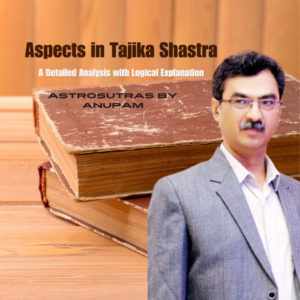Introduction to Blind Question in Prashna (Horary) Astrology
A blind question in Horary Astrology (Prashna Shastra) refers to a scenario where the astrologer does not know the exact details of the querent’s concern but must derive the answer based on the planetary positions at the time of the question.
This is an advanced predictive technique and is mentioned in classical texts like:
- Brihat Parashara Hora Shastra
- Prashna Marga
- Daivagya Vallabha
- Krishneeyam Prashna Tantra
- Neelakantha’s Tajika System
The accuracy of Horary Astrology depends on:
- The sincerity of the querent – The question should be serious.
- The astrologer’s skill – Correct interpretation of planetary placements.
- The Prashna Chart – The planetary configuration at the exact time of the question.
1. Core Principles of Horary Astrology for Blind Questions
A. Setting Up the Prashna Chart
- Note the Exact Time when the querent asks the question.
- Cast a Prashna (Horary) Chart for the location where the astrologer is at that moment.
- The Lagna (Ascendant) of the Prashna Chart represents the querent’s situation.
B. Identifying the Core Area of Concern (Without Knowing the Question)
Since the querent has not revealed the exact question, the astrologer must determine it by observing:
- The Nature of the Ascendant (Lagna)
- If a Chara Rashi (Movable Sign) (Aries, Cancer, Libra, Capricorn) rises → The question may be about travel, career, or moving.
- If a Sthira Rashi (Fixed Sign) (Taurus, Leo, Scorpio, Aquarius) rises → The question may be about property, stability, finances, or health.
- If a Dwiswabhava Rashi (Dual Sign) (Gemini, Virgo, Sagittarius, Pisces) rises → The question may be about confusion, decisions, education, or relationships.
- The Placement of the Moon
- The Moon is the most important planet in Prashna; it represents the querent’s emotions and real concern.
- Moon in the 1st house → The person is thinking about themselves or health.
- Moon in the 7th house → The question is about a partner, spouse, or business deal.
- Moon in the 10th house → The concern is about career, status, or authority.
- The Strength of the Lagna Lord
- If the Lagna lord is strong → The person is in a good state.
- If the Lagna lord is weak or afflicted → The person is in distress or trouble.
- Natural Karakas & Their Houses
- Sun → Authority, Government, Father, Health
- Moon → Mind, Mother, Travel, Comforts
- Mars → Conflict, Competition, Accidents
- Mercury → Communication, Business, Intelligence
- Jupiter → Wisdom, Finance, Guru, Fortune
- Venus → Marriage, Love, Luxuries
- Saturn → Karma, Delays, Suffering
If a strong Mars is in Lagna, the concern may be conflict, legal issues, or aggression.
If Jupiter is in Lagna, the concern may be finances, guidance, or morality.
2. Analyzing Different Areas of Life in a Blind Question
Once the general area of concern is determined, analyze the relevant houses.
A. Relationship or Marriage Question
- 7th House & its Lord – Relationship or marriage.
- Venus (for love/marriage) & Moon (emotions).
- Navamsha (D-9) Chart – Marriage-related confirmation.
- Ithasala Yoga – If Lagna lord and 7th lord are forming Ithasala, marriage/relationship will happen soon.
B. Career or Job Question
- 10th House & its Lord – Career status.
- 6th House – Job and service sector.
- Saturn & Sun – Indicators of profession.
- D-10 (Dashamsha Chart) – For career analysis.
C. Health or Disease Question
- 6th House & its Lord – Disease & sickness.
- 8th House – Chronic diseases.
- Saturn, Mars, Rahu, or Ketu in the 6th/8th house → Health issues.
- Moon Afflicted → Mental stress, anxiety, depression.
D. Financial Question
- 2nd House & its Lord – Savings & wealth.
- 11th House – Gains & profits.
- Jupiter & Venus – Wealth indicators.
3. Special Techniques for Answering Blind Questions
A. Use of Arudha Lagna in Prashna
- Arudha Lagna (AL) shows how the world sees the querent’s situation.
- If AL is strong → The person is in a favorable situation.
- If AL is weak or afflicted → The person is struggling.
B. Use of Tajika Aspects (Ithasala and Isarapha)
- Ithasala Yoga (Applying Aspect) → Positive outcome, success.
- Isarapha Yoga (Separating Aspect) → Negative outcome, delays.
C. Strength of the Moon
- A well-placed Moon → The person is emotionally stable.
- A weak or afflicted Moon → The person is anxious or worried.
D. Use of Nimitta (Omens & Signs)
- If an astrologer hears a sudden sound or sees an unusual event while casting the Prashna chart, it has meaning.
- Classical texts suggest observing natural omens to refine the prediction.
4. Example Case of a Blind Question
Case Study: Querent Asks Nothing, but Wants a Prediction
A person comes to an astrologer but does not reveal their question. The astrologer casts the Prashna chart:
- Lagna: Scorpio (Fixed sign) → Question is about finance, stability, or health.
- Moon in 2nd House → The question is about money or speech.
- 2nd Lord (Jupiter) in 4th House with Rahu → There is financial uncertainty or property-related stress.
- Saturn in 10th House → Career stress is likely.
- Venus (7th Lord) in 6th House → Relationship tensions exist.
Final Prediction:
Since the 2nd house, Moon, and Jupiter are prominent, the querent is worried about financial matters or family assets.
If asked, they may confirm concerns related to money, inheritance, or property.
- Blind question analysis requires careful observation of Lagna, Moon, and key planets.
- Tajika aspects, Ithasala, and Isarapha yogas help determine outcomes.
- Arudha Lagna & Omens enhance accuracy.
- Each house and planet provides clues about the querent’s hidden concerns.

